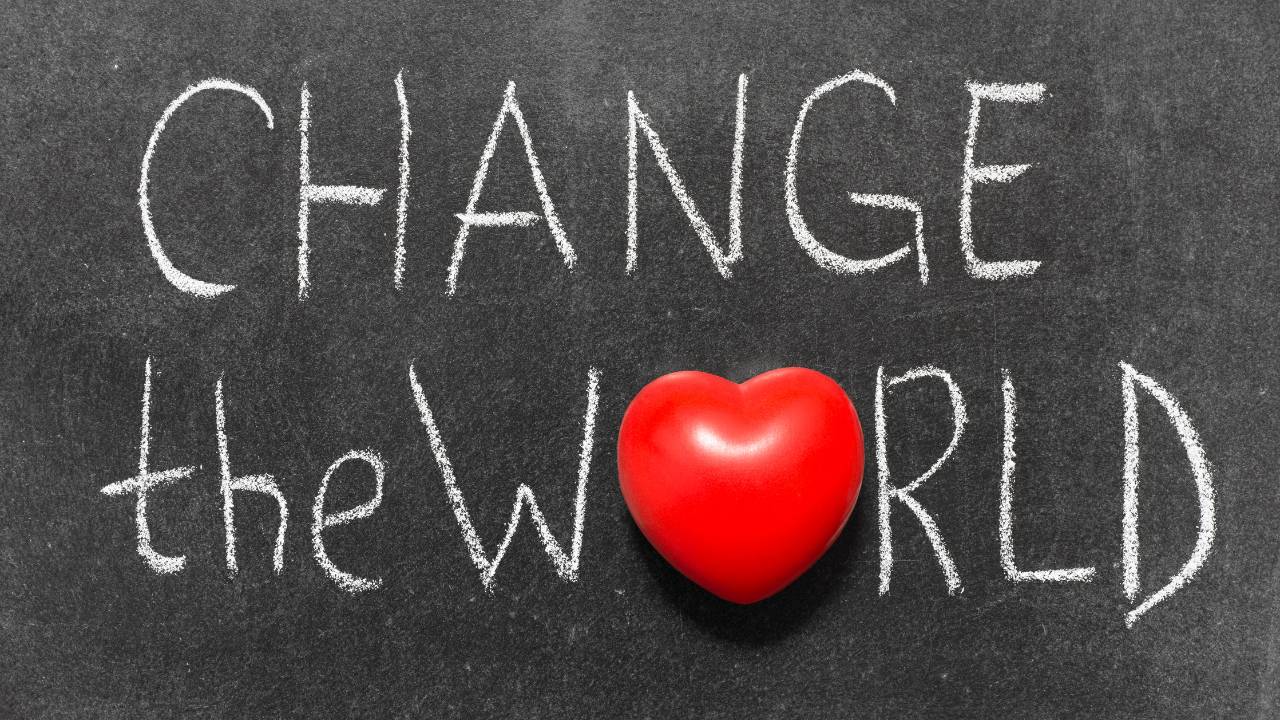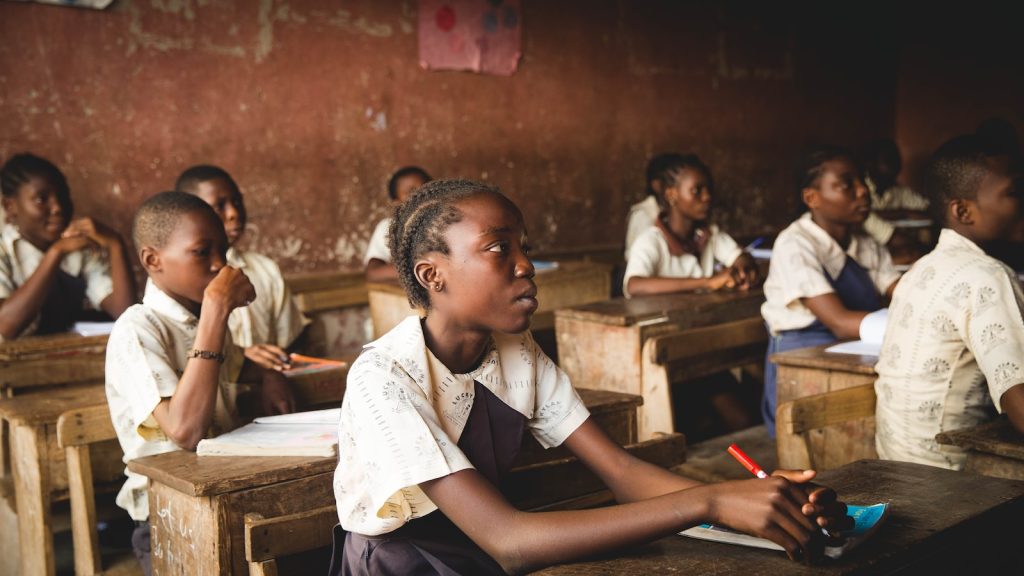How Can Education Change the World? An Informative Analysis

No one can deny the power of education. It has been a driving force for progress throughout history, enabling us to develop our societies and create a more enlightened world. This blog post will explore how education can bring about positive and lasting change in the world and how we can use it to create a better future. We’ll look at the role of formal education and life-long learning and how education can defeat global poverty, reduce inequality, and more.
Definition of Education
Education can be defined in many ways, but at its simplest, it is the process of learning. It can happen in formal settings, like schools and colleges, or in informal settings, like homes and workplaces. Education is about acquiring new knowledge, skills, and values. It can be an individual process, or it can happen in groups.
Education is important because it helps people to grow and develop. It helps them to become better citizens and to lead more productive and fulfilling lives. Education is also important for the growth of societies and the economy. It helps to create an informed and skilled workforce, and it enhances social and economic development.
Definition of Change
Change is the act or instance of making or becoming different. It can refer to a process that is intentional or unexpected and can occur over time or in an instant. Change is often a result of encountering new information, experiences, or situations that differ from the present.
Why Can Education Change the World?
Education can have a powerful and positive effect on the world by helping to create an enlightened society that is culturally aware, open to change and growth, and committed to positive global transformation. Education helps to break down stereotypes and reduce poverty, promote gender equality, foster peace and stability, reduce discrimination, raise awareness of social and environmental issues, and create awareness of human rights. In its most basic sense, education provides individuals with the skills and knowledge necessary to be economically self-sufficient and actively engaged in society.
When knowledge and skills are widely distributed through a community, citizens are empowered to break the cycle of poverty and inequality perpetuated throughout much of human history. By investing in educational opportunities for everyone, we can improve the world.
How Can Education Change the World for the Good?
Education can be the catalyst for positive and lasting change in the world. It can open up opportunities for those who are particularly disadvantaged and equip them with the tools they need to create a brighter future. By providing children and adults with access to high-quality education, we can help break the cycle of poverty, improve health outcomes, reduce violence, reduce inequality and provide access to knowledge and skills that can help solve global challenges.
An educated population can build more resilient communities by understanding sustainable development, managing resources and developing an informed understanding of global changes. Education can also provide access to broader employment opportunities, create an informed citizenry so people can participate effectively in democratic processes, and give people the tools to start businesses and generate income.
Education also plays a crucial role in helping to break down gender barriers and create equality, as well as providing the skills and knowledge needed to work towards creating a safer and more equitable world. Finally, improving education can empower marginalized groups, giving them the confidence to take charge of their futures.
Positive Effects of Education on Society
It is widely accepted that education is essential for the development of any society. It is a tool that opens doors to opportunities and helps people develop their full potential. While the positive effects of education on individuals and families are well known, its impact at the societal level is often underestimated.
However, education has several positive effects on society that are worth considering. It can help to reduce crime, promote social mobility, and improve economic growth. It also leads to better health and a more cohesive society. Here, we will discuss the positive effects of education on society.
1. Social Equity – Education can enable people from disadvantaged backgrounds to rise in society and get quality job opportunities.
2. Cultural Awareness – Education can promote cross-cultural understanding and appreciation for different societies and cultures, enabling people to coexist peacefully.
3. Economic Development – The educated workforce can help to increase productivity, technological innovation, and economic growth.
4. Improved Health – Education increases people’s knowledge about health and hygiene habits that can help reduce the risk of diseases and improve overall health outcomes.
5. Political Engagement – Education encourages more informed citizens and helps them develop analytical skills and confidently participate in civic functions.
6. Virus and Disease Prevention – Education can help reduce access to risky behaviours and increase awareness about virus and disease protection.
7. Reduced Crime – With better educated and informed citizens, criminal activity can be curbed, and crime rates can be lowered.
8. Environmental Conservation – Education can help create environmental awareness and appreciation of the natural world, encouraging people to conserve resources and protect the environment.
The Role of Education in Building a Better World
Education has been an integral part of civilization, playing an essential role in social, political and economic development for as long as civilization has existed. Education fosters creativity, innovation, and critical thinking and gives people the skills and knowledge needed to build a better world. It helps identify potential leaders and empowers individuals to unlock their potential. It can open up new ways of thinking and look at the world.
In addition, education can increase tolerance and promote understanding of different cultural and religious backgrounds, which is necessary to foster a more global and interconnected world. Education is needed to create a just society that respects the rights and dignity of all individuals, regardless of their demographic background.
Education is also necessary for global development. It provides the skills needed for skilled labour and can drive economic growth. It also helps promote more equitable and efficient use of natural resources, encouraging sustainable economic development.
Furthermore, education imparts skills to protect health and the environment, advance science and technology, and increase access to healthcare, clean water and proper sanitation, which are all essential for health and are necessary for development.
By providing access to education to all segments of society, the world can create an equitable society in which everyone’s voice is heard, and everyone’s rights are respected. Education can also empower people to make informed decisions, which helps reduce poverty and increases the chances of achieving better living standards, prosperity and peace.
Summary of Points
Education truly is one of the most powerful tools available to us and can be leveraged in unique ways to create positive, lasting change in the world. We have seen the power of education helping to combat the spread of diseases, empower women, reduce poverty, improve access to clean water and sanitation and countless other vital causes. It is inspiring to recognize the capabilities of such an impactful resource. By providing educational opportunities to those who have been neglected or overlooked, we can continue to make strides towards a brighter, more united and equitable world.
To know more about this, you may watch this video:






